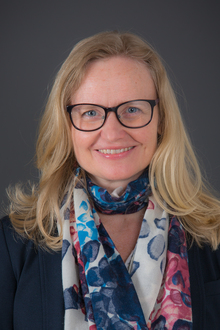Background: Lack of gender balance in the business sector
Norway is rated as one of the most gender equal states in the world. Still the gender gap is significant in the business sector. Despite several decades with a multitude of programs to enhance diversity and gender balance in companies, the results are bleak: Women constitute 22 % of the members of the executive committees in Norway, and only 10% of the largest companies in Norway have a female CEO. Further, women are strongly underrepresented in operational positions with profit & loss responsibility (Institute for Social Research. 2018. CORE – Norwegian Gender Balance Scorecard).
Existing measures and programs to enhance diversity and gender balance in companies are not research based and not systematically reviewed in terms of outcomes. Another problem is that measures and programs may not be closely linked to the relevant pipeline(s) and career trajectories and the companies’ strategies for recruitment, advancement and succession. Further, companies lack data.
Project Approach: Identifying challenges and solutions
In order to identify critical stages and indicators for gender balance and existing and potential measures this project will:
- The road to the top: Identify the relevant pipeline(s) and career trajectories and examine which backgrounds, positions and trajectories that lead to the top in general (Norway versus US), including the intersection of gender, age and career vs family building
- The impact of operational responsibility / profit & loss: Examine the actual pipeline including operational (line) positions versus support (staff) positions.
- Measures that works? Examine existing and potential measures for increasing gender balance within companies, globally as well as locally.
WP1. The ideal career path vs. deviant careers
To understand hindrances and possibilities this WP draws on analyses of interviews with executive search firms in Norway and US, examining how processes of recruitment, advancement and succession planning may intersect with gender, timing of career building vs family building and age, and whether the pattern is similar or different to the pattern found in the US.
WP2. The road to the top in Norway vs US
This WP will identify the relevant pipeline(s) and career trajectories and examine which backgrounds, positions and trajectories that lead to top management in Norway versus US. The WP will be conducted based on reversed tracking of the careers of CEOs in the 200 largest firms in Norway and the US, using their CVs to uncover what trajectories that brought them to their current position.
WP 3. Establishing baseline database of the technological platform: status and indicators
This WP will map and review indicators for gender balance and analyze line/operational positions vs staff/support along the pipeline in the Founding Partners companies, important to identify critical stages. The data will be based on HR-information from the Founding Partners. Founding partners include the following companies; DNB, Schibsted, NENT, Accenture, Sweco, AF-gruppen, Otigo, FSN, Thommessen, Gjensidige, Visma and KPMG.
WP 4. Measures that works?
Based on knowledge from WP1–3 and a literature review of measures in use in the business sector, this WP will review existing measures for gender balance in light of indicators for gender balance in the partner companies.
WP 5. International network
To ensure that the project relates to the international research front, the project group at CORE/ISF has established research collaborations:
- Center for Research on Gender in STEMM, University of California, San Diego.
The Center for Research on Gender in Science, Technology, Engineering, Mathematics, and Medicine (STEMM) fosters social scientific research on gender disparities and underrepresentation of women in STEMM fields of study and careers. - The VMware Women's Leadership Innovation Lab at Stanford University generates foundational research to advance women's leadership by diagnosing barriers, developing and evaluating interventions to get beyond barriers, and disseminates research-based solutions by bridging the gap between research and practice.


